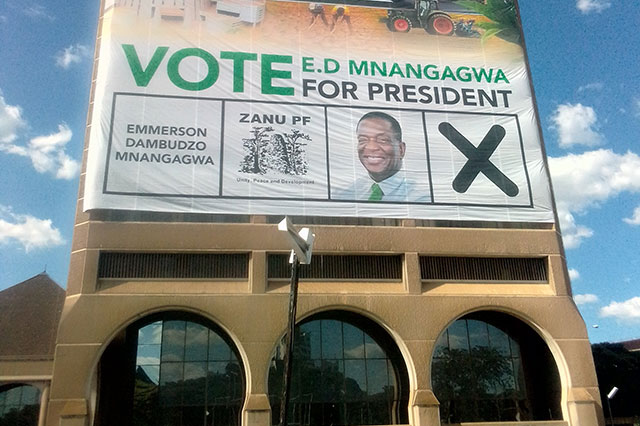By Betha Madhomu
As the world enters 2023, quite a significant number of countries in Africa are gearing up for high-stakes elections.
Will the countries be able to hold free, fair and credible elections? That is the big question.
Nigeria has set its general election for February 25, with the youths determined to see the end of President Muhammadu Buhari’s rule.
Buhari himself has already voiced confidence in free polls, brushing aside any impact from recent attacks on electoral offices.
“I am resolute in my determination to enable the conduct of free, fair and transparent national elections in the first quarter of 2023, whose outcome would be largely accepted to the contestants,” he said at the recent US Institute of Peace in Washington.
PRESS RELEASE
Attack on INEC Office in Oru West Local Government of Imo State“Overall, this is the 7th attack on our facilities in five States in the last four months” pic.twitter.com/dMHm8ZPFLk
— INEC Nigeria (@inecnigeria) December 4, 2022
In a bid to improve transparency Buhari has also approved an amended electoral law that will allow electronic transfer of vote results during the elections.
Past presidential ballots in Africa’s most populous country have been marred by violence, fraud, court challenges and a rise in ethnic tensions.
Four leading candidates have emerged in this year’s tight race to replace Buhari, who is stepping down after two terms with the West African country’s economy struggling and insecurity a major challenge for his successor.
Ruling party All Progressive Congress (APC)’s Bola Ahmed Tinubu, main opposition Peoples Democratic Party or PDP’s Atiku Abubakar, Labour Party candidate Peter Obi and the New Nigerian Peoples Party’s Rabiu Kwankwaso are among those vying for the presidency.
In September, they all signed a “peace” deal meant to ease tensions.
In total, 18 presidential hopefuls are running, including one woman.
Zimbabwe is also among the African countries facing notable elections, with President Emmerson Mnangagwa, 80, who came to power in 2017 after generals forced long-time ruler Robert Mugabe to resign, likely to retain his position as the leader of the Southern African country.
The Zimbabwe Electoral Commission (ZEC) has yet to announce the exact date for the vote, but it has revealed that it would be held in either July or August.
The 2018 election took place on July 31, with Mnangagwa winning 50.8% of the votes. Nelson Chamisa, who was running on the ticket of the Movement for Democratic Change (MDC) allince, won 44.3%.
The 44-year-old Chamisa will likely run again against Mnangagwa this year under his party, the Citizens Coalition for Change (CCC) formed early last year.
The home of the people’s revolution being revolutionalised. It’s game on pic.twitter.com/wny8KBkpUJ
— ZANU PF (@ZANUPF_Official) December 24, 2022
No opposition party has won an election and formed a government in the former British colony since independence in 1980.
Many are calling for the amendment of electoral laws so that all parties have a fair chance of winning at the polls.
Currently, the political and electoral playing field remains deeply uneven and stacked in favour of the ruling Zanu-PF party.
Mnangagwa has also been accused of using the courts to crackdown on dissent, with some opposition lawmakers and opposition supporters having languished in prison over accusations of violence.
One of the lawmakers, Job Sikhala has spent over 190 days behind bars without trial. He has languished in a Harare maximum security prison since June, when he was arrested along with other opposition activists on charges of inciting public violence.
OUR TASK is not to merely replace Zpf without introducing a new governance culture.We seek to raise the leadership bar and attract strong, capable & quality leaders who serve Zimbabwe with dignity & distinction, guaranteeing quality services,dignity & security for all citizens.
— nelson chamisa (@nelsonchamisa) December 19, 2022
There is rising discontent in Zimbabwe as Mnangagwa struggles to ease entrenched poverty, end chronic power cuts, and rein in inflation.
When Mnangagwa came to power, he pledged to revive Zimbabwe’s moribund economy and mend ties with Western allies who had turned their backs on the country and imposed sanctions on individuals aligned to Zanu-PF.
The economic woes which plagued Mugabe’s era have largely remained.
Efforts at re-engaging with the West were scuttled after six people were gunned down and several more injured when soldiers were deployed to quell poll-related protests in 2018.
Meanwhile, the Democratic Republic of Congo (DRC) is also going to the polls to choose its next president on December 20 this year.
In power since 2019, President Felix Tshisekedi is expected to seek a second term.
With persistent insecurity, that has displaced tens of thousands of people from their homes, it is highly likely that there would be challenges holding free, democratic and transparent elections.
Tshisekedi came to power in January 2019, succeeding Joseph Kabila after 18 turbulent years as leader.
It was the country’s first peaceful handover of power.
Tshisekedi has already announced his intention to run for a second term.
Other possible contenders could include Martin Fayulu, the runner-up in the 2018 presidential polls who claims he was deprived of a victory in the vote.
Tshisekedi’s inauguration ceremony in 2019 capped more than two years of turmoil sparked by Kabila’s refusal to step down when he reached the constitutional limit on his term in office.
The last two presidential elections before that, in 2006 and 2011 — both won by Kabila — were marred by bloodshed and dozens died in a crackdown on protests after he chose to remain in office in 2016.
Follow African Insider on Facebook, Twitter and Instagram
Picture: Twitter/@ZANUPF_Official
For more African news, visit Africaninsider.com


